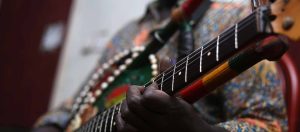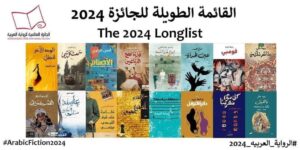Sultan Bin Ali Al Owais Cultural Foundation has been hosting shows, forums and translating books to spread Chinese culture since 2010
Chinese people and Arabs enjoy long trade and social friendship dating back to centuries.
And a Dubai-based cultural foundation says it has played a small, yet an important part in making the bridge between the two countries stronger.
Amid a historic official visit by Chinese President Xi Jinping to the UAE starting on Thursday, the Sultan Bin Ali Al Owais Cultural Foundation is continuing its cultural mission to engage some 200,000 Chinese expats living in the UAE, the largest population in the Middle East.
Abdul Elah Abdul Kader, executive director at the foundation, welcomed the visit of the Chinese President ahead of the weeklong Chinese art and cultural activities to be held in October 2018.

The centre has a long relationship with China that goes back to 2010 when we hosted the first extensive Chinese cultural programme … We had a huge attendance from Arabs who were very curious to learn about the Chinese culture.”
“China is a country with one of the oldest and richest cultures in the world. Whether it is their arts, music, dance or literature, these streams of Chinese culture are unique in their own form and for many years we have sought to promote them at the foundation,” said Abdul Kader.
“China’s relationship with Arab (region) goes back to thousands of years ago and this visit paves the way to stronger ties between the two countries,” he said.
An early indication of the harmony of relationship between the UAE and China was when Shaikh Zayed Bin Sultan Al Nahyan initiated the Shaikh Zayed Centre for Arabic Language and Islamic Studies at Beijing Foreign Studies University in 1994, four years after his historic visit to China in 1990.
Since 2010
In an interview with Gulf News, Abdul Kader looked back over eight years of celebrating Chinese culture at the foundation, located on Al Rigga Street, and how the Chinese festivals they had held had been able to promote cultural exchange.
From hosting events like the China National Opera House and various musical plays to inviting talented Chinese musicians and instrumentalists to perform live, the foundation has had deep collaborations with the Ministry of Culture of China to highlight their culture here.
“The centre has a long relationship with China that goes back to 2010 when we hosted the first extensive Chinese cultural programme, which included several dance and musical performances and the Guangdong Foshan Ceramics and Modern Painting Show,” he said.
The weeklong festival also hosted speakers from China who spoke in Arabic about the old friendship between Arabs and Chinese people and displayed a selection of modern Chinese literary works translated into Arabic by the foundation.
“We had a huge attendance from Arabs who were very curious to learn about the Chinese culture and we decided to continue our mission in promoting it and held another festival in 2011,” he said.
He recalled how during each festival, the streets surrounding the foundation’s premises were colourfully draped with vibrant colours and Chinese decorations, attracting many residents and tourists to the activities inside.
Keen on having UAE residents experience the China National Opera House, which includes an opera troupe, a choir and a symphony orchestra of over 500 artists, Abdul Kader said the foundation initially was not sure how they would be able to accommodate such a large group of “incredibly talented” artists.
“With certain arrangements and based on the number we can accommodate, the opera house arranged a marvellous show with 75 artists inside the foundation’s theatre hall.”
The award-winning ‘Marriage of Yusuf’ musical was one of the prominent musicals held at the foundation in 2012, portraying the marital customs and practices of the Hui Muslim group.
“The musical included a breathtaking song-and-dance show and while many in the audience did not understand Chinese, the music kept everyone engaged because music is a language for everyone.”
Abdul Kader said the foundation has always kept its doors open to promote other cultures of the world and holds its events without any entrance fee.
“The real bridges that connect people and governments with different backgrounds are sports, arts and culture. These are the platforms that bring people together,” he said.
The efforts of the Sultan Bin Ali Al Owais Cultural Foundation to promote Arab culture has included a huge contribution of prints to teach Arabic at the University of Zhejiang Gongshang in China, Abdul Kader said.
The foundation
The Sultan Bin Ali Al Owais Cultural Foundation was named after acclaimed Emirati poet Sultan Bin Ali Al Owais who established a permanent award bearing his name in 1987, with the aim of honouring, encouraging and supporting Arab scholars, littérateurs and intellectuals.
In 1994, it became an official foundation by the virtue of a decree issued by the late Shaikh Maktoum Bin Rashid Al Maktoum, who was then the Vice-President and Prime Minister of the UAE and Ruler of Dubai.
The centre promotes various cultural activities and is home to the UAE Writers Association. It hosts an interesting line-up of exhibitions, performances, author signings and various other events.
gulfnews




